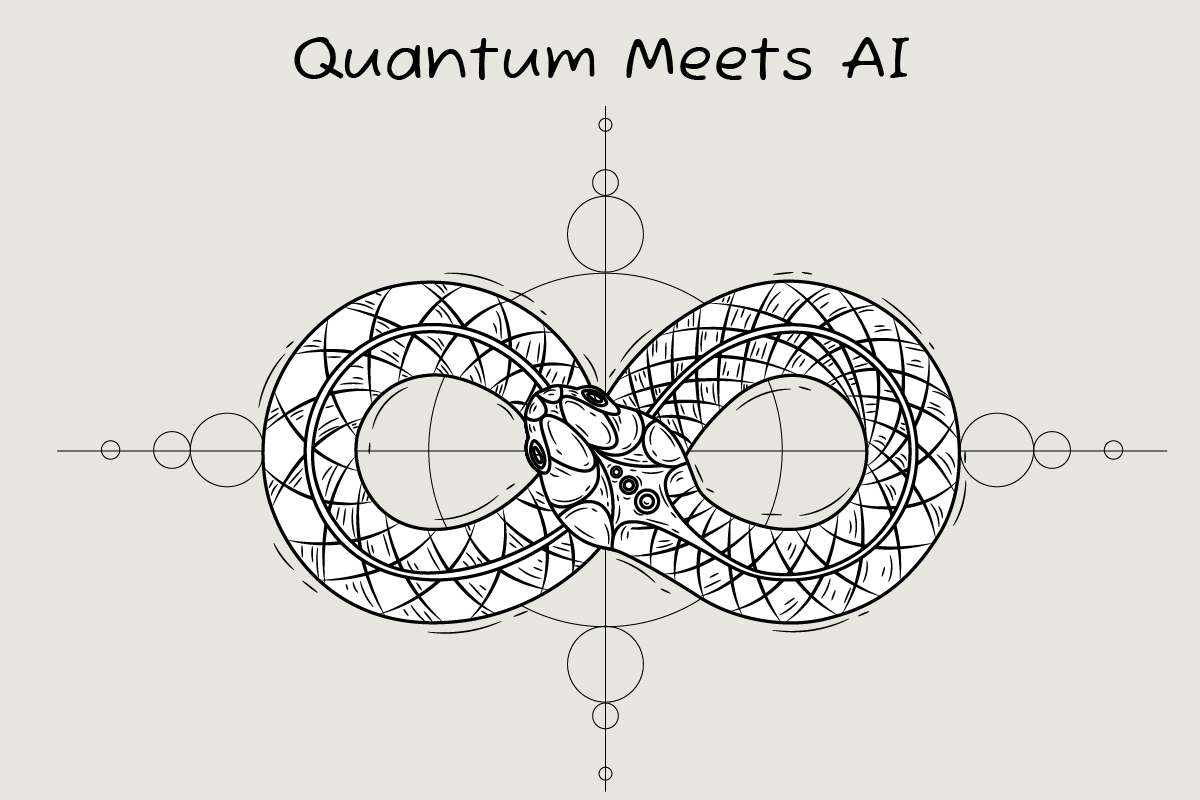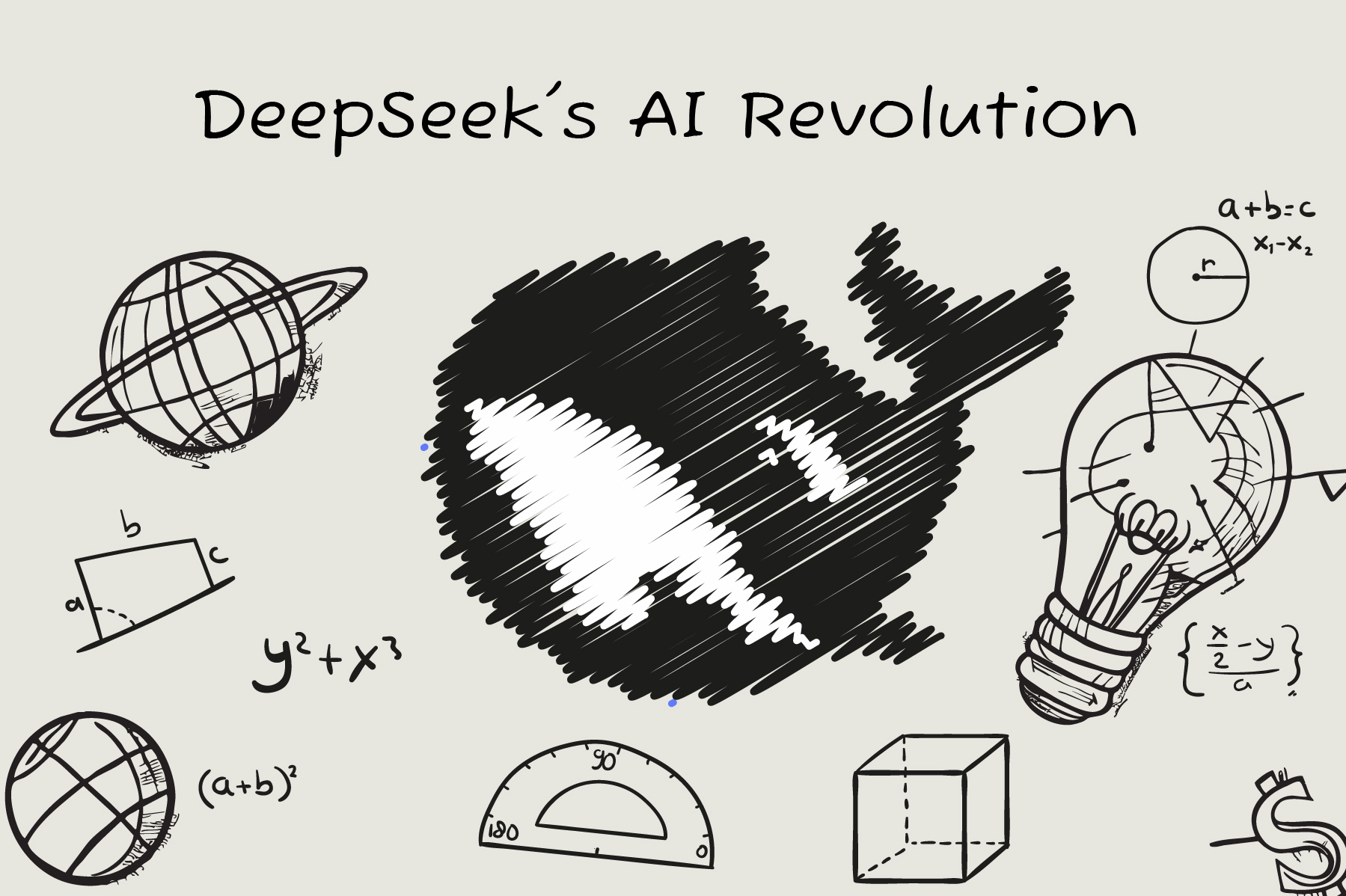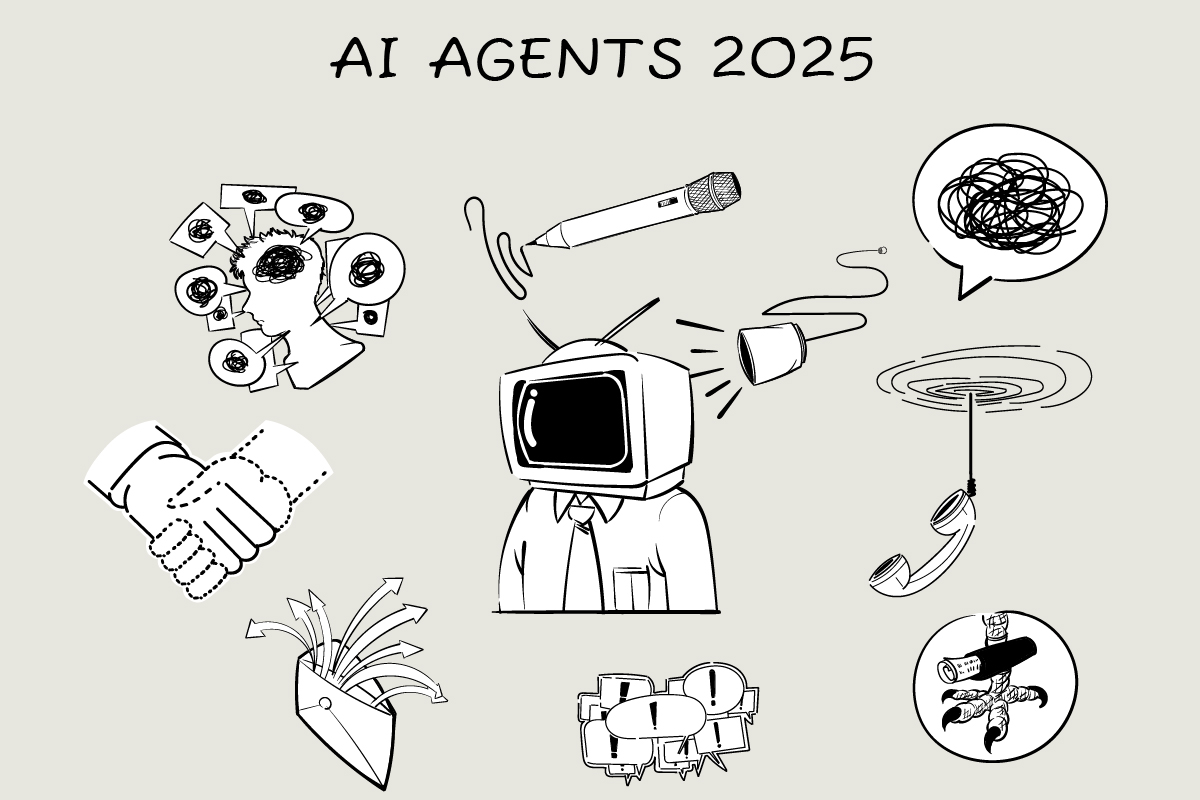Quantum Computing Meets AI: The Revolutionary Alliance Reshaping Technology's Future
"The convergence of quantum computing and AI represents one of the most promising technological developments of our time, with the potential to solve problems previously considered impossible."
The Quantum-AI Convergence: Competition or Collaboration?
The relationship between quantum computing and artificial intelligence has evolved from theoretical speculation to practical experimentation with remarkable speed. In early 2025, this convergence accelerated dramatically when Quantinuum launched its 'Generative Quantum AI framework,' designed to leverage quantum-generated data for AI models1. According to Raj Hazra, Quantinuum's CEO, "Quantum data is the representation of the actual reaction in quantum states. It gives the AI model better and more accurate data... Quantum can enable classical AI to do things it couldn't do before."2
This collaboration isn't merely additive—it's transformative. Traditional AI systems running on classical computers require enormous datasets to simulate complex quantum phenomena, such as molecular interactions, and even then achieve only limited precision. Quantum computers, operating according to the same quantum mechanical principles they're attempting to simulate, offer a more natural and potentially more efficient approach to these problems. This represents a fundamental shift in how we process information rather than simply adding more computing power to existing architectures.
The evolution appears particularly promising for specific domains where quantum effects dominate, such as drug discovery, materials science, and energy research. These fields involve simulating behaviors at the atomic and subatomic levels—precisely where quantum computers theoretically excel. By producing more accurate quantum data with fewer resources, quantum-enhanced AI could drive breakthroughs in everything from pharmaceutical development to new materials with precisely engineered properties.
Despite this promising collaboration, there's another narrative emerging—one of competition rather than complementarity. Recent research suggests that advancements in classical AI might be outpacing quantum computing in areas once considered quantum's natural territory. Alexandre Tkatchenko, a physics professor at the University of Luxembourg, made this point emphatically: "It's wonderful. You can really do most of chemistry."3 His statement underscores how AI is making remarkable progress in simulating quantum systems without requiring actual quantum hardware.
The Technical Battleground: Weakly vs. Strongly Correlated Systems
The technical nuances of this competition reveal fascinating distinctions in computational approaches. Classical AI has demonstrated increasing proficiency in modeling what scientists call "weakly correlated" quantum systems—those where particles interact less intensively with each other. These systems, while complex, can be effectively approximated using techniques like density functional theory (DFT) and, increasingly, artificial intelligence models trained on vast datasets. The advancing capabilities of AI in this domain have led some researchers to question whether quantum computing's long-promised advantages might be diminishing before they've fully materialized.
MIT Technology Review reports that this shift represents a potential recalibration in how we think about quantum computing's future applications. Frank Noe of Microsoft Research noted that the convergence of AI with classical computing might make the number of systems that strictly require quantum computing solutions "much smaller."3 This assertion challenges the conventional wisdom about quantum computing's inevitable dominance in chemical and material simulations.
However, the picture becomes more complex when considering "strongly correlated" quantum systems—those where particles interact intensively, creating effects that are extraordinarily difficult to model. These systems, relevant for transformative technologies like high-temperature superconductors and precision sensors, present profound challenges for both classical and quantum approaches. In 2017, researchers including Giuseppe Carleo and Microsoft's Matthias Troyer demonstrated that neural networks could model these complex quantum systems without relying on conventional data training3. Instead, these AI models operate using fundamental rules of quantum mechanics, like Schrödinger's equation, to find optimal configurations.
"The wave function is a very complicated mathematical object," Carleo explained. "What has been shown by several papers now is that [the neural network] is able to capture the complexity of this object in a way that can be handled by a classical machine."3 This breakthrough has sparked a new wave of research combining neural network approaches with quantum physics principles, establishing AI as a legitimate contender in quantum simulations.
Energy Efficiency: The Hidden Competitive Advantage
While discussions of quantum computing often focus on raw computational power and algorithm design, a less-discussed but potentially decisive factor is emerging: energy efficiency. Traditional AI models, particularly large language models, have been criticized for their enormous energy requirements. Training a single state-of-the-art AI model can consume as much electricity as hundreds of homes use in a year. As models continue to grow in size and complexity, this energy consumption threatens to become unsustainable.
Quantum computing may offer a surprising solution to this problem. Researchers at Quantinuum reported remarkable efficiency gains in their quantum systems compared to classical supercomputers. In experiments with "random circuit sampling," a task used to benchmark quantum computers against classical systems, their quantum computer used 30,000 times less energy than Frontier, one of the world's most powerful supercomputers1. This dramatic efficiency advantage suggests that as quantum AI models mature, they could require significantly less energy than their classical counterparts.
The efficiency gains extend beyond raw energy consumption to encompass model complexity as well. Quantinuum researchers have discovered that "quantum models tend to require significantly fewer parameters to train than their classical counterparts."1 In classical machine learning, particularly in large neural networks, the number of parameters can grow into the billions, creating massive computational demands. Quantum models, leveraging the unique properties of quantum mechanics, appear capable of achieving comparable performance with a fraction of the parameters, potentially reducing both energy and computational requirements by orders of magnitude.
In one striking example, Quantinuum researchers demonstrated competitive language model performance "using only four qubits."1 This result highlights quantum computing's potential to achieve high performance with remarkably compact representations, suggesting a future path toward more sustainable AI development. The implications could be profound for an industry increasingly concerned about its environmental impact and computational limits.
Practical Applications Emerging from Theory
The theoretical advantages of quantum-enhanced AI are beginning to translate into practical applications across multiple domains. Quantinuum's collaboration with Amgen on peptide classification demonstrates how quantum computing can contribute to computational biology and drug discovery. Working on Quantinuum's System Model H1, the joint team performed sequence classification used in designing therapeutic proteins and found "competitive performance with classical baselines of a similar scale."1 This represents a significant milestone—quantum computing delivering practical value in a domain with immediate commercial relevance.
Similar advances are occurring in natural language processing, where Quantinuum's team has developed "Quixer," a quantum transformer model optimized specifically for quantum architectures1. Unlike classical transformers designed to leverage GPU parallelism, Quixer utilizes quantum algorithmic primitives to achieve high qubit efficiency. When applied to realistic language modeling tasks, the model achieved results competitive with classical transformers trained on the same data—marking "the first quantum machine learning model applied to language on a realistic rather than toy dataset."1
These practical applications extend beyond the theoretical claims about quantum advantage to demonstrate actual performance on commercially relevant tasks. Such examples provide compelling evidence that the quantum-AI convergence isn't merely speculative but is beginning to deliver tangible results that could eventually transform industries from pharmaceuticals to finance to materials science.
The Hardware Race: Beyond Theory to Implementation
The theoretical potential of quantum-enhanced AI ultimately depends on practical hardware implementation. In December 2024, Google's Quantum AI team unveiled Willow, "a state-of-the-art quantum computing chip that has demonstrated the ability to not only exponentially correct errors, but also process certain computations faster than supercomputers could within known timescales in physics."4 This represents a significant milestone in the development of reliable quantum computers that can deliver practical advantages over classical systems.
Google's advancement follows a broader pattern of accelerating hardware development across the quantum computing industry. Quantinuum's System Model H1, mentioned in multiple research breakthroughs, represents one of the most advanced quantum computers currently operational. The company's unique position as "the world's largest integrated quantum company," with over 500 employees including 370+ scientists and engineers, has enabled it to make rapid progress in developing both hardware and software solutions for quantum AI1.
However, significant hardware challenges remain before quantum computing can realize its full potential for enhancing AI. Current quantum systems still operate in what researchers call the "noisy intermediate-scale quantum (NISQ) era," characterized by systems that lack full error correction and have limited logical qubits5. Overcoming these limitations requires advances in qubit quality, error correction, and overall system stability.
Ironically, artificial intelligence itself is playing a crucial role in addressing these hardware challenges. Google's Quantum AI team recently achieved "a breakthrough in quantum error correction, using neural networks to demonstrate a quantum memory operating below the surface code threshold—a crucial step toward fault-tolerant quantum computing."5 Similarly, researchers are using reinforcement learning and deep neural networks to maximize qubit fidelity, reduce noise, and discover novel quantum circuits that outperform human-designed alternatives.
The Geopolitical Dimension: A New Tech Race
Beyond the technical and commercial implications, the development of quantum AI has acquired significant geopolitical dimensions. As one analysis notes, "The race to harness the transformative power of quantum computing has become a critical front in the broader technological competition between the United States and its strategic rivals."5 Nations recognize that leadership in quantum AI could translate into advantages across national security, supply chains, defense, and fundamental scientific research.
This recognition has spurred substantial government investments and national initiatives aimed at accelerating quantum computing development. Companies like Google, Microsoft, and Quantinuum are not merely competing in a commercial marketplace but are participants in what some characterize as a technological arms race with profound national security implications. The winner of this race may gain advantages in breaking encryption, developing advanced materials, designing superior weapons systems, and establishing standards that shape the technology's future development.
The stakes of this competition are amplified by quantum computing's potential to fundamentally alter the existing balance of technological power. Unlike incremental advances in classical computing, quantum computing represents a paradigm shift that could render certain types of currently unsolvable problems tractable. Nations that master this technology first may gain significant advantages that are difficult for others to overcome simply by investing more resources into conventional approaches.
Looking Forward: The Hybrid Future of Computing
As we assess the complex relationship between quantum computing and artificial intelligence, it becomes increasingly clear that the future likely involves hybrid approaches rather than the complete dominance of either technology. The most promising path forward appears to involve leveraging classical AI for problems where it demonstrates efficiency and effectiveness, while developing quantum approaches for specific domains where quantum effects dominate or where quantum algorithms offer provable advantages.
This hybrid approach acknowledges the complementary strengths of both technologies. Classical AI excels at pattern recognition in large datasets, has mature hardware and software ecosystems, and can be deployed at scale today. Quantum computing offers unique capabilities for simulating quantum systems, potentially exponential speedups for certain algorithms, and dramatic energy efficiency advantages for specific applications. By combining these strengths, researchers may develop computational systems more powerful than either approach could achieve independently.
The relationship between quantum computing and AI is thus evolving from one of potential competition to one of mutual enhancement. AI techniques are helping to advance quantum hardware and algorithms, while quantum approaches are beginning to enhance AI capabilities for specific applications. This virtuous cycle of improvement may accelerate progress in both fields beyond what would be possible if they developed in isolation.
For organizations contemplating investments in these technologies, this suggests a strategy focused on understanding specific problem domains rather than making blanket commitments to either approach. The optimal computational strategy increasingly depends on the particular characteristics of the problem being solved, with quantum approaches showing greatest promise for problems involving quantum simulation, complex optimization, or specific mathematical structures that align with quantum algorithms.
Key Takeaways
Here are the essential insights from the quantum computing and AI convergence:
-
Unprecedented Energy Efficiency: Quantum computers have demonstrated using 30,000 times less energy than classical supercomputers for comparable tasks, potentially revolutionizing sustainable computing.
-
Complementary Technologies: Rather than competing, quantum computing and AI are increasingly working together, with AI helping to improve quantum hardware and quantum computing enhancing AI capabilities.
-
Practical Applications Emerging: Real-world applications are already appearing in:
- Drug discovery: More accurate molecular simulations
- Materials science: Designing new materials with specific properties
- Financial modeling: Solving complex optimization problems
- Natural language processing: Quantum models achieving competitive results with just 4 qubits
-
Hardware Advancements Accelerating: Google's Quantum AI team unveiled Willow, a quantum chip demonstrating exponential error correction and computational advantages over supercomputers.
-
Geopolitical Significance: Nations recognize quantum AI leadership as critical for national security, economic competitiveness, and technological sovereignty.
-
Hybrid Future: The most promising path forward involves hybrid quantum-classical approaches tailored to specific problem domains rather than either technology dominating completely.
Conclusion
The convergence of quantum computing and artificial intelligence represents one of the most promising technological developments of our time. While early speculation focused on potential competition between these approaches, actual research reveals a more nuanced relationship characterized by both complementarity and specialization. Quantum computing offers unique capabilities that can enhance AI, particularly for problems involving quantum simulation and energy efficiency. Simultaneously, AI techniques are accelerating quantum hardware development and algorithm design.
The practical applications of this convergence are beginning to emerge in fields ranging from drug discovery to natural language processing, with early results suggesting significant potential for transformative impact. Companies like Quantinuum, Google, and Microsoft are making substantial investments to translate theoretical advantages into practical capabilities, while nations compete to establish leadership in a technology with profound implications for economic competitiveness and national security.
As these technologies continue to develop and interact, we can expect further breakthroughs that challenge conventional assumptions about computational limits. The most successful approaches will likely leverage the strengths of both quantum and classical systems, creating hybrid solutions tailored to specific problem domains. For researchers, businesses, and policymakers navigating this complex landscape, maintaining flexibility and domain-specific expertise will be essential to capturing the full value of the quantum-AI revolution.
Frequently Asked Questions
What is quantum computing and how does it differ from classical computing?
Quantum computing is a type of computation that harnesses the unique properties of quantum mechanics, such as superposition and entanglement, to process information. Unlike classical computers that use bits (0s and 1s), quantum computers use quantum bits or "qubits" that can exist in multiple states simultaneously. This allows quantum computers to explore multiple solutions to a problem at once, potentially solving certain complex problems exponentially faster than classical computers. Quantum computers excel at simulating quantum systems, factoring large numbers, and solving optimization problems that are intractable for classical computers.
How is AI helping advance quantum computing development?
AI is accelerating quantum computing development in several key ways:
- Quantum error correction - neural networks are being used to identify and correct errors in quantum systems
- Quantum circuit optimization - AI algorithms can design more efficient quantum circuits than human experts
- Qubit control - machine learning techniques optimize the control pulses used to manipulate qubits
- Noise reduction - AI models can characterize and mitigate noise in quantum systems
- Quantum algorithm discovery - reinforcement learning is being used to discover novel quantum algorithms
Google's Quantum AI team has demonstrated significant breakthroughs using neural networks for quantum memory operations below the surface code threshold.
What are the most promising applications of quantum-enhanced AI?
The most promising applications of quantum-enhanced AI include:
- Drug discovery and molecular simulation - quantum computers can more accurately model molecular interactions for pharmaceutical development
- Materials science - designing new materials with specific properties by simulating quantum interactions
- Financial modeling - solving complex optimization problems in portfolio management and risk assessment
- Climate modeling - simulating complex climate systems with greater accuracy
- Natural language processing - Quantinuum has demonstrated competitive language model performance using only four qubits
- Cryptography and cybersecurity - developing quantum-resistant encryption methods
- Energy research - optimizing energy systems and developing more efficient catalysts for energy production
How energy efficient are quantum computers compared to classical supercomputers?
Quantum computers have demonstrated remarkable energy efficiency advantages over classical supercomputers. According to research by Quantinuum, their quantum computer used 30,000 times less energy than the Frontier supercomputer when performing comparable "random circuit sampling" tasks. This dramatic efficiency stems from quantum computing's fundamentally different approach to computation, where quantum properties like superposition and entanglement allow for processing multiple possibilities simultaneously without the massive energy requirements of classical systems. Additionally, quantum models require significantly fewer parameters than classical AI models to achieve similar performance, further reducing computational and energy demands. This efficiency advantage could be transformative for an AI industry increasingly concerned about its environmental impact.
When will quantum computers become practical for everyday business applications?
Quantum computers are already showing practical value in specific domains, but widespread business adoption will likely follow a gradual timeline:
- 2025-2027: Early adopters in pharmaceuticals, materials science, and finance are already seeing value from quantum-enhanced simulations and optimizations
- 2027-2030: As error correction improves and quantum hardware scales, more businesses in logistics, supply chain, and manufacturing will begin implementing quantum solutions for optimization problems
- 2030-2035: Broader adoption across industries as quantum advantage becomes more pronounced and accessible through cloud services
- Beyond 2035: Potential integration of quantum processing into everyday computing infrastructure
The path to practical quantum computing will likely involve hybrid quantum-classical approaches rather than quantum systems completely replacing classical computers.
Footnotes
-
https://www.quantinuum.com/blog/quantum-computers-will-make-ai-better ↩ ↩2 ↩3 ↩4 ↩5 ↩6 ↩7 ↩8
-
https://thequantuminsider.com/2024/11/08/experts-see-a-technological-turf-battle-brewing-between-quantum-computing-and-classical-ai-in-chemistry-and-materials-science/ ↩ ↩2 ↩3 ↩4
-
https://blog.google/technology/research/behind-the-scenes-google-quantum-ai-lab/ ↩
-
https://scsp222.substack.com/p/quantum-ai-harnessing-the-power-of ↩ ↩2 ↩3



